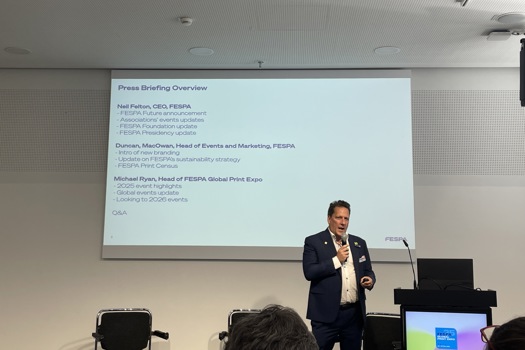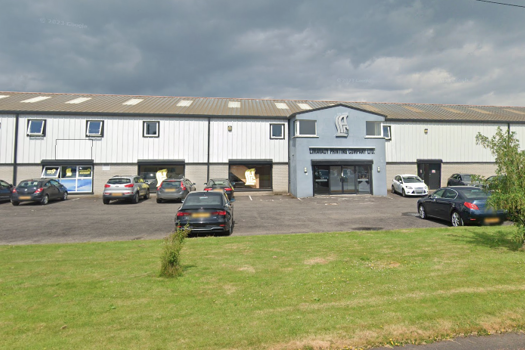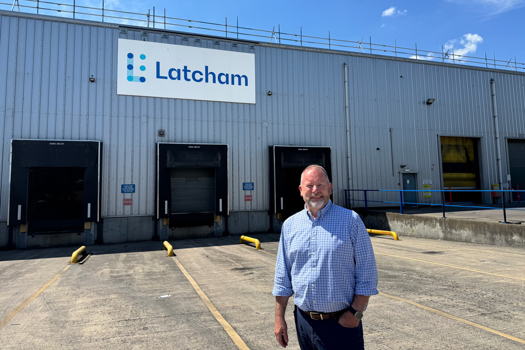Last month, energy companies were grilled on their soaring prices and profits by MPs after British Gas, Npower, SSE and Scottish Power announced huge increases in household bills. Now it’s the turn of Mervyn Ward, general manager of Orkney Media Group, and other printers to voice dismay at the rising cost of powering their businesses. Official figures are scary.
Department of Energy and Climate Change findings reveal the cost of electricity for all consumers has risen 35% in five years and by 135% in nine. Meanwhile Jim Ratcliffe, founder of Ineos, which owns Grangemouth petrochemical plant, recently argued that the UK is not an attractive place to manufacture as energy taxes add €6 (£5) per megawatt hour against €1 in Germany.
Ward’s company in Kirkwall prints newspapers, books and large-format work on kit ranging from a five-colour Heidelberg CD 74 to Xerox digital presses. He has just signed a two-year energy deal that was £3,350 dearer over the contract period than the last time he renewed. Even though he used a broker, this was the best deal he could get – some were £5,000 dearer.
“Printers will struggle to pass on these rises to their customers and the price hikes will hit the industry,” he argues. “Costs for all consumables will go up, which could be enough to knock the sector back from what looks like a cautious recovery. It could also make us even less competitive to firms that print in Europe.”
Last year Orkney Media Group spent £140,000 installing solar panels and £30,000 replacing oil-powered burners with air-source heat pumps. The latter was prompted by oil prices doubling in four years, and soaring energy prices make Ward feel as if “we’re taking one step forward and two steps back”, something that is compounded by the changes to feed-in tariffs, which mean it will now take longer to recoup the cost of his energy-saving measures. He would like to see prices capped and suppliers hit by windfall taxes, and he’s in good company: Alpha Colour operations director Dave Oldfield would also like to see a cap. His Gloucester-based company has skylights and roof fans to cut bills and is toying with switching to LED lighting and motion light sensors in the company warehouse to make more savings.
Crucial factor
Energy plays a bigger part these days in choosing what type of kit to buy. Alpha Colour is to install a Heidelberg Speedmaster XL 75-4+LX this Christmas with an electric meter to measure its power consumption and cut energy use by a fifth. Oldfield hopes recent news of a new nuclear power plant in Somerset – the first plant to be built in the UK for nearly two decades – will one day lead to reduced bills.
“But I’m not banking on it, and there’s only so much you can do; prices are only ever going to go up. Depending on the deal you get, it can make you more or less competitive. You have to be wily, look at the market every couple of years and try and get the best fixed price.”
BPIF commercial products manager Steve Walker says the recent hikes have prompted more members to approach the federation, which is set to work with Schneider Electric to offer a brokerage service to purchase energy towards the end of November. A crucial factor in energy costs is not so much how much you use, but when you buy it; autumn being particularly expensive.
Schneider Electric is what Walker calls a “first-tier” broker and BPIF members phoning up for advice on energy will be signposted by the federation to the firm. BPIF will not get a commission or any “kick back”, he insists. It’s an added service to members and recognition that a good broker can work small wonders. The service cannot however guarantee better prices.
Lack of any form of guarantees on energy is a huge problem, insists the Federation of Small Businesses (FSB). Policy chair for energy, environment and water Allen Creedy calls for not only reasonable prices and profits from the energy titans but comparable tariffs and transparency. Small firms, he points out, cannot compare prices online – suppliers do not publish commercial tariffs.
“Small businesses have to pick up a phone to get a quote that is only valid for a couple of days... a week at most. They cannot compare apples with apples, which is outrageous because energy prices are critical to our members’ businesses. A 10% increase in electricity bills has the potential to put some small companies out of business.”
Meanwhile, subsidies such as feed-in tariffs and renewable heat incentives, while welcome for those in a position to benefit, are not applicable for all. Why should a business with a south-facing plant be subsidised to put up solar panels by one without, just through a “quirk of topography?” asks Creedy.
“Better tax incentives and capital allowances would help small and micro-businesses, including printers, to generate their own power, making them less dependent on the big six energy companies. This might go some way to reduce the kind of outrage that greeted recent price rises.”
Opinion: Enlist expert help to ensure you’re not paying too much
 David Hunter, head of strategic alliances, Schneider Electric
David Hunter, head of strategic alliances, Schneider Electric
Energy costs are becoming painful for UK businesses, with the print sector no exception. Despite a relatively benign wholesale market over recent years, rapidly increasing grid costs for ‘rewiring Britain’, and green levies, are pushing up bills and will continue to do so in the years to come.
UK industrial energy prices are competitive compared with other European countries like Germany or Italy. However, using Germany as an example, the picture changes markedly if a company can exploit tax exemptions. With the EEG tax included, German power prices are perhaps 20% higher than the UK, but with exemptions this can turn into a 20% cost advantage.
Comparison with Germany is instructive, as high charges there are a consequence of renewable subsidies (particularly feed-in tariffs) that were introduced far earlier than in the UK. The cost of these subsidies is a signpost to our future if we do not reduce the cost of support for wind farms.
Businesses should not despair; although the cost of energy will rise, there are opportunities for competitive advantage. Network tariffs and smart grids are providing real incentives for businesses to be flexible about how they use their energy, and a correctly designed energy supply contract can open up opportunities for significant cost savings by cutting exposure to soaring peak charges.
Enlist the help of a reputable energy broker – innovative advisers can guarantee a budget for businesses while managing the opportunity to take advantage of market dips. Advisers can also review historical utility bills to recover overpayments that deliver immediate cashflow benefits.
Make sure the cost of the advice is transparent – most energy brokers do not disclose the hidden commission they receive from suppliers for placing contracts. Typically, these hidden bill charges amount to 7% of the bill. Insist on a warranty that all charges are disclosed at the outset.
Reader reaction: What are you doing to mitigate escalating energy bills?
 Sam Shannon, sales director, Deltor Communications
Sam Shannon, sales director, Deltor Communications
“Prices are only going up. We need to look at innovation. Manufacturers can make their machines run only so fast; perhaps it’s time to focus more on making them cheaper to run. Printers can help themselves – we aim to install solar panels at Deltor early next year, which should cover most of our power requirements in the summer months and pay for the initial outlay within six years. The government has slashed feed-in rates so supplying unused electricity back to the National Grid is no longer so attractive.”
 Libby Ferguson, environmental officer, Park Lane Press
Libby Ferguson, environmental officer, Park Lane Press
“We introduced a PowerPerfector unit, which streamlines the flow of electricity and takes out power spikes, with a grant from the Carbon Trust. This gave us an estimated 13% like-for-like saving and, because machines run better without energy surges, it has reduced maintenance. Beefing up insulation and improving windows has also boosted efficiency, while improving production practices per million impressions has upped energy efficiency between 15% and 20% relative to production.”
 Andy Wilson, joint managing director, PressOn
Andy Wilson, joint managing director, PressOn
“Our printers use enormous amounts of energy in drying, but we recently bought an HP Latex 3000 and a key selling point was lower electricity consumption. Our bill tips £30,000 and we now look at electricity not just ink per square meter. Energy bills don’t give me sleepless nights but are increasingly important when buying machines. Solar panels, insulation and double glazing are good but it’s a brave person who opts for something with a 15-year payback when a £100,000 machine gives you instant revenue.”










